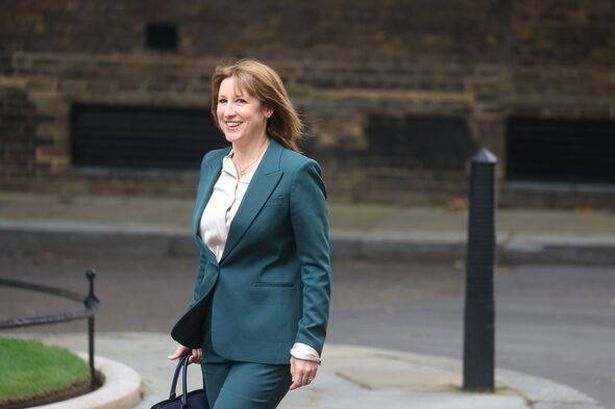Business
UK State Pension Age Faces Increase to 70 Amid Policy Review

The debate surrounding the UK’s state pension age has intensified, with experts predicting a potential rise to 70 years as the government grapples with increasing financial pressures. Calls have emerged for Chancellor Rachel Reeves to reconsider the existing triple lock policy, which guarantees annual pension increases based on inflation, earnings growth, or a minimum of 2.5%.
Financial Burdens Prompt Urgent Reforms
Currently, the state pension age stands at 66 and is set to increase to 67 by 2028. Financial advisers and think tanks are advocating for more rapid reforms, citing demographic shifts and rising costs that threaten the long-term sustainability of the pension system. Samuel Mather-Holgate, an independent financial adviser based in Swindon, emphasized the urgent need for change, stating, “The state pension system is ripe for squeezing, so an increase to the state pension age is coming down the tracks, probably to 70.”
The state pension framework presently accounts for nearly 5% of the UK’s GDP, a figure anticipated to rise to almost 8% over the next 50 years. The Office for Budget Responsibility (OBR) has warned that pension costs will exceed previous estimates by £10 billion annually due to unpredictable inflation and stagnant wage growth since 2012.
The triple lock policy, while designed to protect pensioners’ incomes, has been identified as a significant factor in growing expenditures. Projections indicate that it will add an estimated £23 billion to annual pension spending by 2030 if it remains unchanged, compared to a system based solely on inflation adjustments.
Alternatives and Recommendations
Institutions such as the Institute for Fiscal Studies are advocating for a more sustainable approach to pension reform. They propose that the state pension age should adjust in line with life expectancy, ensuring that workers receive adequate notice before any changes take effect. A suggestion has been made to phase out the triple lock once a sustainable replacement rate is established, in favor of a more predictable pension uprating system.
Economists like Ben Ramanauskas have expressed support for replacing the triple lock with a more sustainable model, stating on social media, “Triple Lock needs to be replaced with a single lock indexing the State Pension to average earnings growth. It will be far more sustainable and give pensioners more of a stake in productivity gains.”
In response to these discussions, a Treasury spokesperson reaffirmed the government’s commitment to the triple lock policy, stating, “We are committed to supporting pensioners and giving them the dignity and security they deserve in retirement.” A government review of the state pension age is scheduled for publication in 2027.
The ongoing dialogue about the future of the UK’s pension system highlights the challenges posed by an aging population and economic pressures, placing significant emphasis on the necessity for timely and effective policy reforms.
-

 Health3 months ago
Health3 months agoNeurologist Warns Excessive Use of Supplements Can Harm Brain
-

 Health3 months ago
Health3 months agoFiona Phillips’ Husband Shares Heartfelt Update on Her Alzheimer’s Journey
-

 Science2 months ago
Science2 months agoBrian Cox Addresses Claims of Alien Probe in 3I/ATLAS Discovery
-

 Science2 months ago
Science2 months agoNASA Investigates Unusual Comet 3I/ATLAS; New Findings Emerge
-

 Science1 month ago
Science1 month agoScientists Examine 3I/ATLAS: Alien Artifact or Cosmic Oddity?
-

 Entertainment5 months ago
Entertainment5 months agoKerry Katona Discusses Future Baby Plans and Brian McFadden’s Wedding
-

 Science1 month ago
Science1 month agoNASA Investigates Speedy Object 3I/ATLAS, Sparking Speculation
-

 Entertainment4 months ago
Entertainment4 months agoEmmerdale Faces Tension as Dylan and April’s Lives Hang in the Balance
-

 World3 months ago
World3 months agoCole Palmer’s Cryptic Message to Kobbie Mainoo Following Loan Talks
-

 Science1 month ago
Science1 month agoNASA Scientists Explore Origins of 3I/ATLAS, a Fast-Moving Visitor
-

 Entertainment2 months ago
Entertainment2 months agoLewis Cope Addresses Accusations of Dance Training Advantage
-

 Entertainment3 months ago
Entertainment3 months agoMajor Cast Changes at Coronation Street: Exits and Returns in 2025









